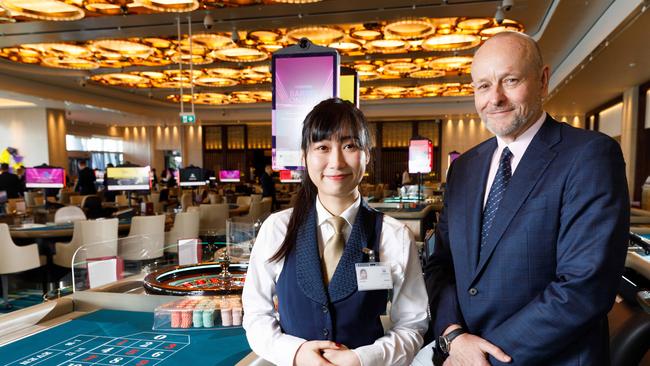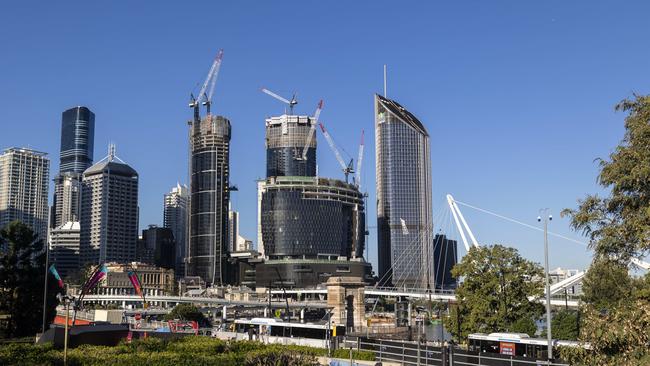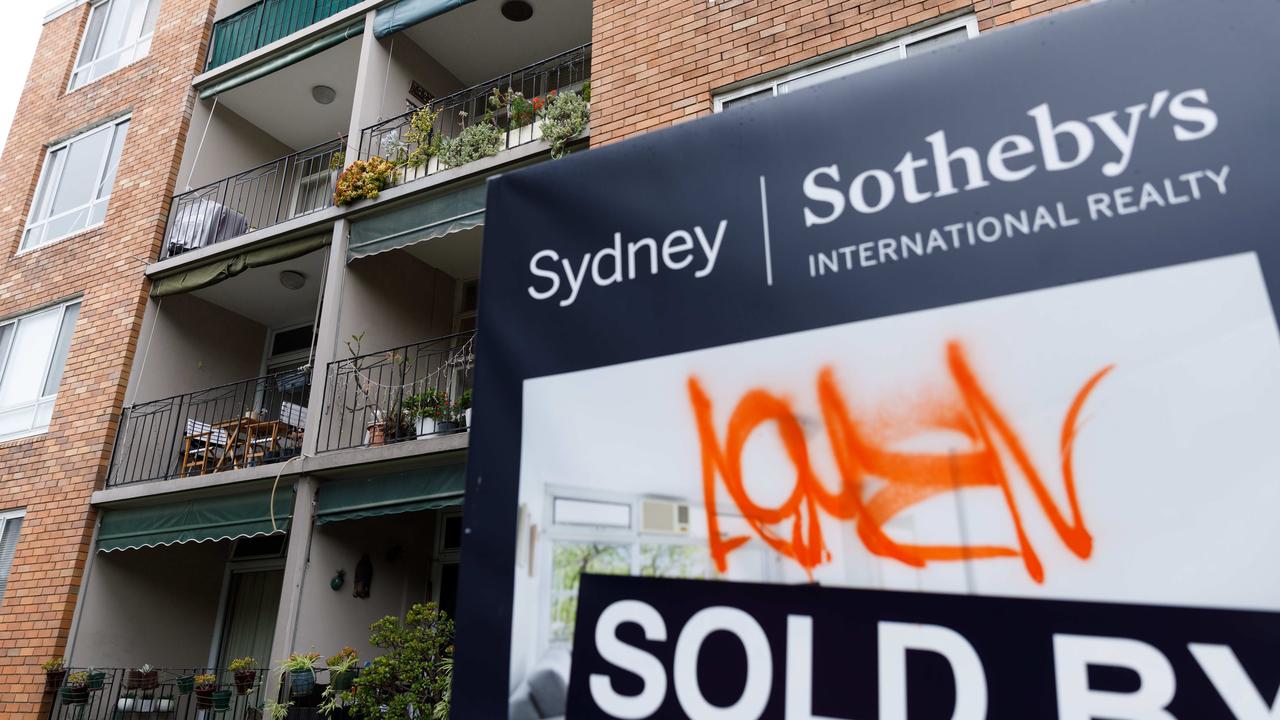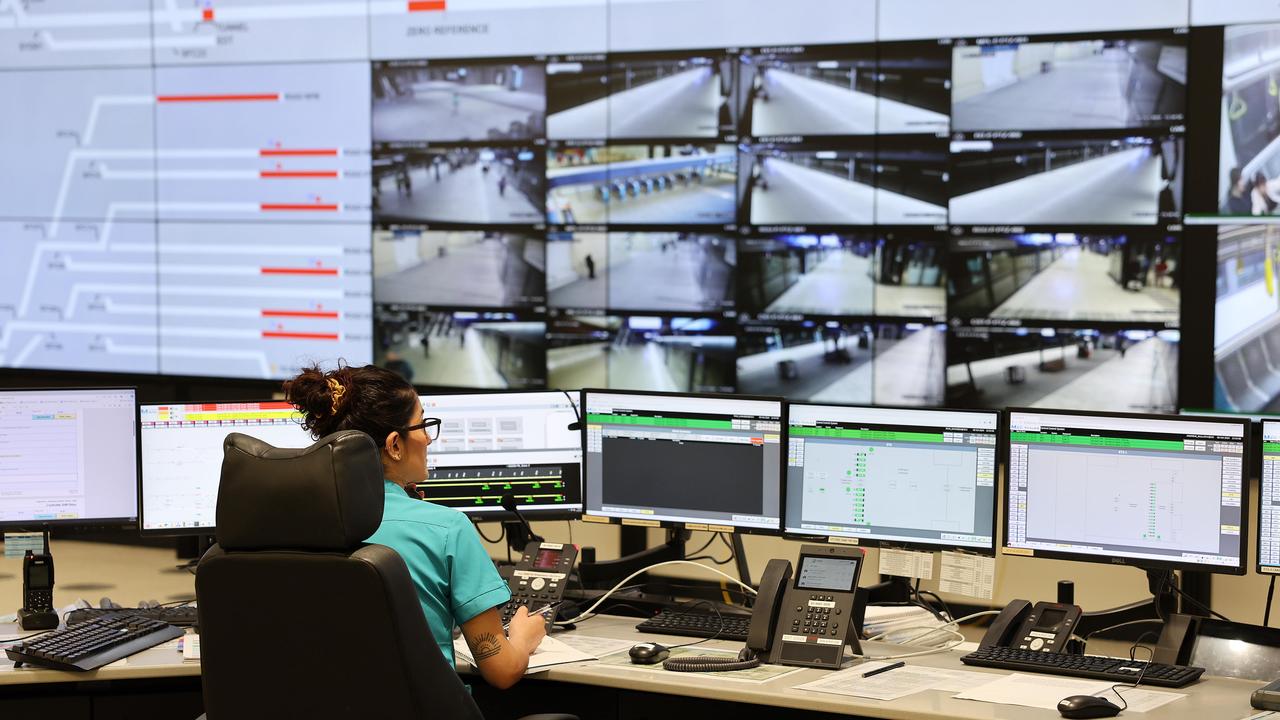Their chips are down as crisis-hit casinos go all in to draw tourists instead of hardcore gamblers
Rocked by a series of money-laundering scandals, Australia’s casinos are looking beyond hardcore gaming to a safer bet – mum-and-dad tourists.

Business
Don't miss out on the headlines from Business. Followed categories will be added to My News.
Rocked by a series of money-laundering scandals, Australia’s casinos are looking beyond hard core gaming to a safer bet – tourists.
Just a few years ago, the $5.5bn industry, which is dominated by Crown and Star Entertainment, was riding high on profits fattened by high-rollers flown in from Asia by so-called junket operators.
Those junket operators are now banned from most casinos following concerns about the rise of money laundering.
As those junket operators shift online, casinos find they not only have a revenue hole but hundreds of hotel rooms to fill in gleaming properties, including Star’s soon-to-open $3bn Queen’s Wharf in Brisbane and Crown’s swish new $2.4bn Barangaroo casino in Sydney. IBISWorld says the Australian casino sector has faced a period of “unprecedented crises” since the pandemic, with a spate of government inquiries endangering the licences of the largest operators in the industry.

Revenue has fallen 4.1 per cent over the past five years. Announcing a drop in half-yearly profit this week, Star Entertainment CEO Robbie Cooke underscored how much the gambling world had changed when he said the group was limiting the time guests spent on gaming tables, as well as suspending the serving of complimentary drinks in its private gaming rooms as part of new “controls”.
Such changes were already hitting the bottom line, with revenue from gaming tables slipping 20.9 per cent during the first half, while takings from electronic gaming machines were down 15.9 per cent.
Australian casinos are not alone in being forced to diversify income from the traditional gaming cash cows. In Macau, casinos have given an undertaking to the government to invest $US15bn ($23bn) in the coming decade, of which 90 per cent must be spent on non-gaming ventures.
Casinos are increasingly downplaying their gaming areas in marketing materials, while restaurants, shopping and theatre visits are highlighted.
“We take our role in the tourism industry extremely seriously and we’re welcoming all visitors to our iconic building to experience all of these amazing experiences we have to offer,” Crown Sydney chief executive Mark McWhinnie said at the reopening of the Barangaroo casino floor in 2022.

The Queen’s Wharf website does not even mention its casino, concentrating instead on “four new luxury hotels, a myriad of new restaurants, bars and entertainment experiences, luxury retail and a state-of-the-art event centre”.
Sydney is shaping as a make or break market for both Star and Crown, and the battle may be more about attracting tourists than high-rollers.
Crown Melbourne still makes the lion’s share of the company’s revenue, up almost 60 per cent last year at $1.5bn, including takings from its hotel, but Barangaroo’s revenue is climbing at a faster pace, rising 139 per cent to $271m.
The Star Sydney reported revenue of $978m last financial year, of which $140m was from non-gaming activities. Sydney is the only market where Star and Crown go head to head, albeit targeting different customers. Crown’s Barangaroo property is near the city’s financial and law districts, while Star operates at Pyrmont on the fringe of the CBD.
In its latest first-half results, Star’s revenue fell 14.6 per cent to $865.7m, with Star Sydney’s revenue off 16.9 per cent at $450m.
Crown offers members-only access to its casino, while Star has hundreds of poker machines in addition to gaming tables.
Star has become a tarnished poster child for Australia’s troubled casino sector. Not only is it facing another inquiry into its fitness to hold a casino licence, it is losing crucial ground in the key Sydney market and faces growing competition from big pubs and clubs in Queensland.
Star has lost close to 60 per cent of its market value in the past year as regulators questioned whether the company has the capacity, or the will, to clean up its act following findings of lax money-laundering controls and other misdeeds.
Its shares closed steady at 52c on Friday, giving the company a market value of $1.5bn.
“Star has become a black hole for shareholder equity,” said veteran stockbroker Charlie Green, of Hunter Green Institutional Broking.
Crown has faced its own battles with regulators, but arguably could be in a better position than Star.
The Victorian Gambling and Casino Control Commission will decide by April whether Crown Resorts will retain its licence in the state after the special manager overseeing the casino’s remediation activities lodged their final report to the regulator.
If Crown does get regulatory clear air, it has foreshadowed a big investment in Melbourne, backed by its deep-pocketed owner, Blackstone. “We’re committed to operating this business at the highest standard possible,” Blackstone president Jon Gray said last year. “Ultimately, we want tourists to come back in a big way.”
Originally published as Their chips are down as crisis-hit casinos go all in to draw tourists instead of hardcore gamblers



